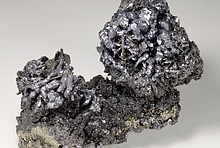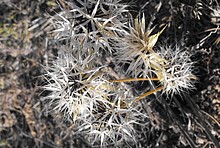Home PageAbout MindatThe Mindat ManualHistory of MindatCopyright StatusWho We AreContact UsAdvertise on Mindat
Donate to MindatCorporate SponsorshipSponsor a PageSponsored PagesMindat AdvertisersAdvertise on Mindat
Learning CenterWhat is a mineral?The most common minerals on earthInformation for EducatorsMindat ArticlesThe ElementsThe Rock H. Currier Digital LibraryGeologic Time
Minerals by PropertiesMinerals by ChemistryAdvanced Locality SearchRandom MineralRandom LocalitySearch by minIDLocalities Near MeSearch ArticlesSearch GlossaryMore Search Options
The Mindat ManualAdd a New PhotoRate PhotosLocality Edit ReportCoordinate Completion ReportAdd Glossary Item
Mining CompaniesStatisticsUsersMineral MuseumsClubs & OrganizationsMineral Shows & EventsThe Mindat DirectoryDevice SettingsThe Mineral Quiz
Photo SearchPhoto GalleriesSearch by ColorNew Photos TodayNew Photos YesterdayMembers' Photo GalleriesPast Photo of the Day GalleryPhotography
╳Discussions
💬 Home🔎 Search📅 LatestGroups
EducationOpen discussion area.Fakes & FraudsOpen discussion area.Field CollectingOpen discussion area.FossilsOpen discussion area.Gems and GemologyOpen discussion area.GeneralOpen discussion area.How to ContributeOpen discussion area.Identity HelpOpen discussion area.Improving Mindat.orgOpen discussion area.LocalitiesOpen discussion area.Lost and Stolen SpecimensOpen discussion area.MarketplaceOpen discussion area.MeteoritesOpen discussion area.Mindat ProductsOpen discussion area.Mineral ExchangesOpen discussion area.Mineral PhotographyOpen discussion area.Mineral ShowsOpen discussion area.Mineralogical ClassificationOpen discussion area.Mineralogy CourseOpen discussion area.MineralsOpen discussion area.Minerals and MuseumsOpen discussion area.PhotosOpen discussion area.Techniques for CollectorsOpen discussion area.The Rock H. Currier Digital LibraryOpen discussion area.UV MineralsOpen discussion area.Recent Images in Discussions
Techniques for CollectorsCleaning tar from rocks

9th Dec 2017 00:02 UTCAndy Young
9th Dec 2017 00:08 UTCJolyon Ralph Founder
9th Dec 2017 00:08 UTCJolyon Ralph Founder

9th Dec 2017 00:21 UTCAlfredo Petrov Manager
If an organic solvent doesn't work, you might want to make sure those black spots aren't a manganese oxide.
9th Dec 2017 01:22 UTCPaul Brandes 🌟 Manager
What about an ultrasonic cleaner?
Just throwing a couple alternatives out there......

9th Dec 2017 01:42 UTCDoug Daniels
9th Dec 2017 02:16 UTCReiner Mielke Expert

9th Dec 2017 19:47 UTCJohn Oostenryk
Some are more resilient than others...
Do a single piece first to see how it goes!
Smooth surfaces of course clean easier than rough, cracked, or porous, but I have worked with all of those and seen improvement.
Keep in mind that a solvent will wick/seep into all cracks/porous areas. It will also migrate the tar. Don't get too hung up on that detail though. The clean fluid will be entering sooner (than the dirty fluid), and will block the flow to some degree.
Some ideas to keep in mind on containment.
DO use a sealed or a "doubled" container to prevent evaporation of solvent. It will also help mitigate fumes depending on where you proceed at.
Depends on size of specimens of course, and how aggressive the solvent is versus plastic. Some plastics are unaffected by some solvents, or slowly.
Doubled = I have set a (sealable)food grade container with the solvent/rock (inside a glass/metal bowl-in case it melted (it did not)) inside a freezer ziploc bag or garbage bag.
I have used the ziploc bags to encapsulate a glass dish with rock at bottom, with a plate set flushly on top (to slow the evap on acetone).
Ideal is a glass jar with screw on lid that has interior white sprayed on coating. The cardboard interior type is not greatest but ok.
I have messed with teflon tape too (like pipefitting) for lip of jar too when no gasket.
For solvents- I have used the following things at times.
Best ever- but expensive~ is spray can- Brake cleaner (The flammable version!) Cost keeps me from using first though!~
I usually go with:
WD-40 (lube/solvent) oily but DOES evaporate clean without issues after couple weeks. Does have an odor for a bit(I don't mind it but some people do.)
Acetone
Lacquer thinner
Mineral spirits (NOT mineral oil :)-
Gasoline-- Works great but I hate the long lingering odor AND it is the worst to contain vapor wise, so IMHO-ONLY do that one outside (not in garage etc.
Gasoline stink can be mitigated by using other solvents after. I forget what combinations I used in past.
Others I have tinkered with...
White gas (Coleman fuel)
Naptha (charcoal grill lighter fluid)
Obviously- most of these burn- and the vapor is very flammable!
Safety awareness--Do not utilize soaking indoors NOR where there is a natural gas furnace, stove, or water heater, electric room heater or toaster, tobacco smokers, cats with candles, or naughty children with matches or errant fireworks...
Tha's plenty of detail!
Best Regards!
~JO:)

9th Dec 2017 22:05 UTCHoward Heitner

10th Dec 2017 02:56 UTCNelse Miller
10th Dec 2017 14:01 UTCHarold Moritz 🌟 Expert

10th Dec 2017 20:21 UTCAndy Young

10th Jun 2019 18:44 UTCSara Abel

11th Jun 2019 12:29 UTCEd Clopton 🌟 Expert
11th Jun 2019 15:29 UTCJohn Truax
11th Jun 2019 19:50 UTCPaul Brandes 🌟 Manager




Mindat.org is an outreach project of the Hudson Institute of Mineralogy, a 501(c)(3) not-for-profit organization.
Copyright © mindat.org and the Hudson Institute of Mineralogy 1993-2024, except where stated. Most political location boundaries are © OpenStreetMap contributors. Mindat.org relies on the contributions of thousands of members and supporters. Founded in 2000 by Jolyon Ralph.
Privacy Policy - Terms & Conditions - Contact Us / DMCA issues - Report a bug/vulnerability Current server date and time: April 20, 2024 02:11:56
Copyright © mindat.org and the Hudson Institute of Mineralogy 1993-2024, except where stated. Most political location boundaries are © OpenStreetMap contributors. Mindat.org relies on the contributions of thousands of members and supporters. Founded in 2000 by Jolyon Ralph.
Privacy Policy - Terms & Conditions - Contact Us / DMCA issues - Report a bug/vulnerability Current server date and time: April 20, 2024 02:11:56











